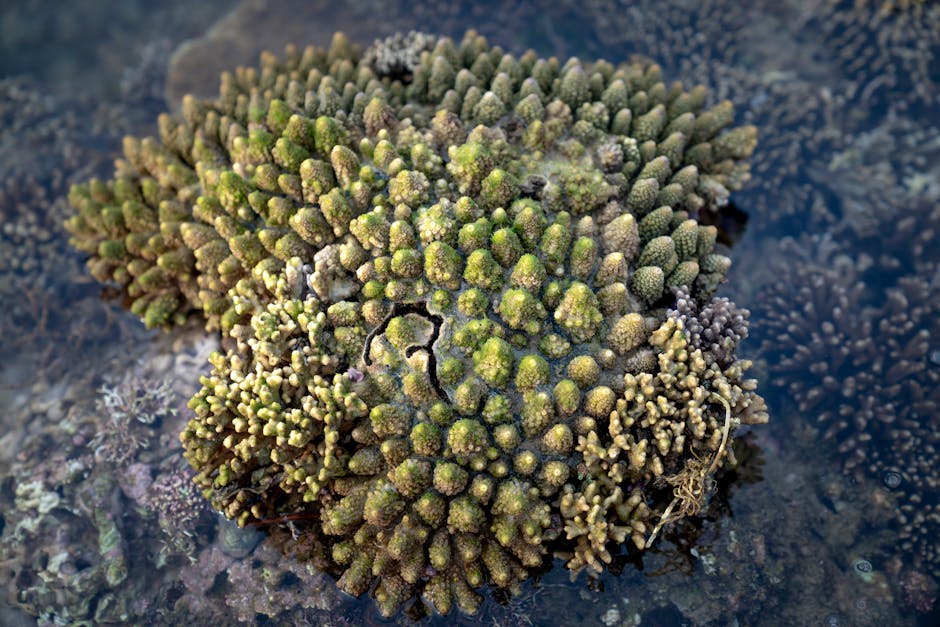A cornerstone of coral reef health is the symbiotic relationship between coral polyps and photosynthetic algae called zooxanthellae. These algae provide the coral with essential nutrients, giving them their dazzling colours. However, rising ocean temperatures, a frequent consequence of greenhouse gas emissions, can trigger a phenomenon known as coral bleaching. When stressed by elevated temperatures, the coral expels the zooxanthellae, leading to the coral turning white. This expulsion deprives the coral of its primary food source, compromising its ability to grow, reproduce, and maintain its skeletal structure. The bleaching event itself isn’t necessarily fatal, but repeated occurrences severely weaken the coral and increase its vulnerability to other stresses, such as disease and predation.
Ocean acidification, a direct consequence of the absorption of excess carbon dioxide from the atmosphere, further complicates the situation. As the ocean absorbs CO2, it becomes more acidic. This decrease in pH disrupts the delicate calcium carbonate balance required for coral polyps to build and maintain their calcium carbonate skeletons. Consequently, coral growth rates decline, making it harder for corals to compete with other organisms for space and resources. The weakening of coral skeletons also renders them more susceptible to physical damage from wave action and storms.
The impacts of climate change on coral reefs extend beyond bleaching and acidification. Increased frequency and intensity of tropical storms and hurricanes can cause direct physical damage to the delicate coral structures, disrupting habitats and decimating populations. A rise in sea levels, driven by the melting of glaciers and ice sheets, inundates shallow reefs, leading to further loss of habitat and hindering the growth and survival of corals in these vulnerable environments. Increased sedimentation from land-based runoff, a result of human activities, can smother coral reefs, further hindering their growth and disrupting their delicate ecosystems.
The consequences of coral reef decline are far-reaching, impacting countless marine species that depend on these ecosystems for food and shelter. From fish and invertebrates to sea turtles and marine mammals, the loss of coral reefs disrupts the entire food web, potentially leading to cascading effects throughout the marine ecosystem. Coral reefs also play a vital role in protecting coastal communities from erosion and storm surges. Their decline significantly increases the risk of coastal flooding and damage, impacting human populations and economies. Moreover, the loss of biodiversity that accompanies the degradation of coral reefs threatens the availability of resources like food and medicine for future generations.
Recognising these intertwined issues necessitates a multi-pronged approach for conservation efforts. Mitigation of climate change through reductions in greenhouse gas emissions is paramount. Protecting and restoring coral reefs through targeted conservation measures, like marine protected areas and coral restoration initiatives, is also crucial. Further research into the physiological responses of corals to environmental stressors and development of novel strategies for coral resilience are vital for long-term survival.
The increasing frequency and severity of coral bleaching events are undeniable evidence of the urgency of addressing climate change. Coral reefs are not merely beautiful structures; they are vital components of the marine ecosystem, with far-reaching consequences for biodiversity, coastal protection, and human well-being. Urgent action is essential to mitigate the impacts of climate change and safeguard these invaluable marine ecosystems for future generations. Understanding the intricacies of the coral-zooxanthellae symbiosis, the mechanisms of ocean acidification, and the interplay of various environmental stressors is crucial for developing effective conservation strategies.
Recent advancements in marine biology, such as the use of genetic tools to study coral resilience and the development of methods for coral reef restoration, offer promising avenues for intervention. Researchers are exploring methods for enhancing coral tolerance to heat stress and developing strategies for restoring degraded reefs using techniques such as coral nurseries and assisted evolution. However, successful implementation requires international collaboration, policy changes, and sustained financial commitment.
Another critical aspect is understanding the role of local stressors in exacerbating the effects of climate change. Overfishing, pollution, and destructive fishing practices can further degrade reef health, increasing the vulnerability of corals to climate impacts. Integrated management approaches that address both global and local stressors are essential for effective conservation.
The complex interactions between coral reefs and the changing ocean environment underscore the interconnectedness of Earth’s systems. These intricate underwater ecosystems serve as vital sentinels for global environmental health, signaling the significant impact of human activities on the marine realm. By understanding the intricacies of the impacts of climate change on coral reefs, we can develop sustainable strategies for conserving these extraordinary ecosystems and the invaluable services they provide.
In conclusion, the impact of climate change on coral reefs is profound and multifaceted. Rising ocean temperatures, acidification, and sea-level rise interact to weaken coral structures, reduce their growth rates, and increase susceptibility to other stressors. This decline has cascading effects throughout the marine ecosystem, impacting biodiversity, coastal protection, and human well-being. Mitigating climate change, implementing effective conservation strategies, and advancing research into coral resilience are crucial steps in safeguarding these invaluable marine ecosystems for future generations. The future of coral reefs is inextricably linked to the future of our planet.
